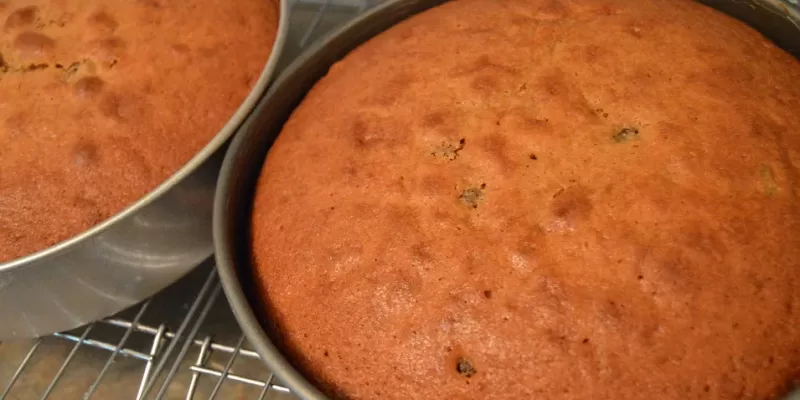How to Bake a Nigerian Cake: Tips, Tricks, and Recipes
Nigerian cakes are a staple dessert in Nigerian cuisine, and they are loved by many for their rich flavors and fluffy texture. Whether it’s for a birthday party, a holiday celebration, or just a sweet treat to enjoy with friends and family, learning how to bake a Nigerian cake is a skill that will serve you well.
In this article, we will cover everything you need to know about baking a delicious Nigerian cake, from the ingredients you’ll need to the step-by-step instructions to follow. So grab your apron, preheat your oven, and let’s get started!
Ingredients
Before you start baking, it’s important to gather all the ingredients you’ll need. Here’s what you’ll need to bake a classic Nigerian cake:
- 2 cups of all-purpose flour
- 2 teaspoons of baking powder
- 1 teaspoon of baking soda
- 1 cup of granulated sugar
- 3 large eggs
- 1 cup of vegetable oil
- 1 cup of milk
- 1 teaspoon of vanilla extract
How to bake a Nigerian cake
Baking a Nigerian cake is a relatively simple process that involves mixing a few key ingredients together, and then baking the batter until it is golden brown and fluffy. Here’s a step-by-step guide on how to bake a Nigerian cake:
Part One: Mixing the Batter
- Preheat your oven to 350 degrees Fahrenheit (180 degrees Celsius) and prepare your cake pans by greasing them with butter or oil.
- In a large mixing bowl, cream together the butter and sugar until light and fluffy. You can use an electric mixer or a whisk for this step.
- Beat in the eggs, one at a time, making sure to mix well after each addition.
- Add the flour, baking powder, and salt to the mixing bowl, and mix until the dry ingredients are fully incorporated into the batter.
- Add the milk and vanilla extract to the batter, and mix until the batter is smooth and free of lumps.
- Pour the batter into your prepared cake pans, filling them up to about two-thirds full.
Part Two: Baking the Cakes
- Place the cake pans in the preheated oven, and bake for 30-40 minutes, or until the cakes are golden brown and a toothpick inserted into the center comes out clean.
- Once the cakes are done, remove them from the oven and allow them to cool in the pans for 5-10 minutes.
- Carefully remove the cakes from the pans and place them on a wire rack to cool completely.
- Once the cakes have cooled, you can decorate them with frosting, icing, or other toppings of your choice.
By following these simple steps, you can easily bake a delicious Nigerian cake that is sure to impress your friends and family.
Tips for Baking a Perfect Nigerian Cake
- To add more flavor to your Nigerian cake, try adding a tablespoon of grated orange zest or a teaspoon of ground cinnamon to the batter.
- To ensure that your cake rises evenly, make sure all your ingredients are at room temperature before you start baking.
- If you don’t have an electric mixer, you can beat the eggs and sugar together by hand using a whisk.
- You can use a variety of cake pans to bake your Nigerian cake, from round pans to square pans to bundt pans.
- To make a layered cake, double the recipe and bake two separate cakes. Once they have cooled, spread frosting between the layers and on top of the cake.
- If you want to add some extra flavor to your Nigerian cake, consider adding a tablespoon or two of brandy to the batter when you add the vanilla extract. This will give the cake a subtle, boozy flavor that pairs well with the sweetness of the cake.
- When it comes time to dust your cake with icing sugar, don’t just sprinkle it on haphazardly. Instead, use a fine-mesh sieve to evenly distribute the sugar onto the cake. This will give your cake a professional-looking finish that will impress your guests.
- Make sure your butter and eggs are at room temperature before you begin baking. This will ensure that they mix together easily and result in a smooth, creamy batter.
- Use high-quality ingredients whenever possible. This includes fresh eggs, good-quality butter, and pure vanilla extract. The better the ingredients, the better the final result will be.
- Don’t over-mix your batter. Once you’ve added the flour, mix only until the ingredients are just combined. Over-mixing can lead to a tough, dense cake.
- Use the right size cake pans. If you use pans that are too small, the batter may overflow and make a mess in your oven. If you use pans that are too large, the cake may be too thin and dry.
By following these tips, you can ensure that your Nigerian cake turns out perfectly every time. Happy baking!
Common FAQs on baking a Nigerian cake
Can I use self-raising flour instead of all-purpose flour?
Yes, you can use self-raising flour instead of all-purpose flour, but be sure to omit the baking powder and baking soda from the recipe.
Can I use butter instead of vegetable oil?
Yes, you can use butter instead of vegetable oil, but be aware that butter will give the cake a slightly different flavor and texture.
Can I use almond milk instead of regular milk?
Yes, you can use almond milk instead of regular milk, but be aware that the flavor and texture of the cake may be slightly different.
Can I add nuts or chocolate chips to the cake batter?
Yes, you can add nuts or chocolate chips to the cake batter, but be aware that this may affect the baking time and the overall texture of the cake.
Can I make a vegan Nigerian cake?
Yes, you can make a vegan Nigerian cake by substituting the eggs with a vegan egg replacer, such as applesauce, mashed bananas, or chia seeds
How long can I store a Nigerian cake?
A Nigerian cake can be stored in an airtight container at room temperature for up to five days, or in the refrigerator for up to a week.
Can I make a gluten-free Nigerian cake?
Yes, you can make a gluten-free Nigerian cake by using a gluten-free flour blend in place of regular flour.
Can I make a Nigerian cake without an oven?
Yes, you can make a Nigerian cake without an oven by using a stove-top or pressure cooker.
Can I use margarine instead of butter in my Nigerian cake?
Yes, you can use margarine instead of butter in your Nigerian cake, but keep in mind that the flavor and texture may be slightly different.
Can I add nuts or dried fruits to my Nigerian cake batter?
Yes, you can add nuts or dried fruits to your Nigerian cake batter to give it extra flavor and texture.
Can I make a smaller or larger Nigerian cake?
Yes, you can adjust the size of your Nigerian cake by changing the amount of ingredients you use. Just make sure to adjust the baking time accordingly.
Can I make a vegan Nigerian cake?
Yes, you can make a vegan Nigerian cake by substituting the eggs with a vegan egg replacer, such as applesauce, mashed bananas, or chia seeds.
Conclusion
Baking a Nigerian cake is a fun and delicious way to explore Nigerian cuisine and impress your friends and family with your baking skills. With just a few simple ingredients and some basic baking know-how, you can create a cake that is sure to satisfy everyone’s sweet tooth. So next time you’re in the mood for something sweet, put on your apron, preheat your oven and get ready to bake a delicious Nigerian cake that everyone will love.


